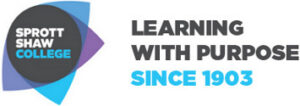Find Substance Abuse Counsellor Training Near You
Open your future to opportunities within a career that matters.
Canada’s addictions worker schools give caring and motivated students the chance to learn skills that can be used to help vulnerable people overcome behavioural or substance abuse problems. Through meaningful training, your compassion can become a strength that lets you excel in one of the most important professional roles in the field of human services.
You can play a key role in helping addicts put together the pieces of their lives. You will develop the ability to help them restore their well-being through overcoming damaging habits related to challenges as diverse as drug or alcohol abuse, problem gambling, sex addiction, shoplifting, and compulsive overeating.
You will be able to offer child, youth, adult, and family counseling services. This will enable you to not only counsel addicts but also the people in their lives that are affected by the addiction.
Addictions Worker Schools
Sponsored Listings
triOS College
Brampton, Ontario,
Hamilton, Ontario
Kitchener, Ontario
London, Ontario
Mississauga, Ontario
Toronto, Ontario
- Addiction Worker
- Addiction and Mental Health Worker
Eastern College
Fredericton, New Brunswick
Moncton, New Brunswick
Saint John, New Brunswick
- Child and Youth Care With Addictions Support Worker
Sprott Shaw College
Chilliwack, British Columbia
East Vancouver, British Columbia
- Mental Health and Addictions Care Worker
CTS Canadian Career College
Barrie, Ontario
North Bay, Ontario
Sudbury, Ontario
- Addiction and Mental Health
3 Things That Make Addictions Worker Training Worth Pursuing

Communities across the nation need caring people who have the compassion, skill, and generosity to help fellow Canadians in the grip of addiction. Without such professionals, countless individuals would lose the support necessary for recovering and reaching their fullest potential. That’s what makes workers who specialize in helping people through chemical dependencies, behavioral excesses, and personal crises such bona fide heroes.
Just consider what the country faces: According to the Center for Addiction and Mental Health, addiction or mental health problems affect one in five people throughout Canada. And one in two Canadians experience a mental health problem before they turn 40. Those are particularly sobering statistics given the fact that substance abuse and other addictions—which frequently go hand in hand with anxiety and depression—often go unreported.
Under the influence of an addiction, a person’s decision-making can become irrational. It becomes impossible, without treatment and support, to control your actions. Your brain gets altered to the point that the systems governing reward and motivation cease to function properly. But, thankfully, through a lot of research and trial-and-error, addictions professionals have gotten a lot better at being able to safely intervene, treat addicts, and prevent relapses.
That’s where being a support worker in this field comes into play. You get to be one of the people directly involved in improving the quality of life for those who need help getting back to a functional state of well-being. And the work comes with some possible upsides you might not expect.
1. High Demand and Compelling Income Potential

Social services, which include addictions intervention, treatment, and counselling, collectively represent one of the fastest-growing career sectors in Canada. As awareness about the effectiveness of such services increases, so does the demand for them. In fact, the Government of Canada’s Job Bank says that about 67,700 job openings for community and social service workers are expected during the period between 2019 and 2028.
Plus, it’s possible to make a comfortable living by working in this field. According to Job Bank estimates, Canadians who are employed full-time performing community and social service work have the chance to earn a median wage of $23.00 per hour (about $47,840 per year) or up to $34.00 or more per hour (about $70,720 per year) with experience.
2. Great Variety in Who You Can Help and What You Can Specialize In
All kinds of people can be affected by addiction. And the types of potentially addictive substances and behaviors are truly wide-ranging. As a result, having a career as an addictions support worker, counsellor, or outreach specialist can lead to interacting with a stunning diversity of people who are each battling something a little different. But it also allows for the possibility of specializing in a particular type of addiction or group of people.
For example, some workers deal primarily with people who are addicted to substances such as street drugs, alcohol, tobacco, or prescription drugs. Other workers might interact mostly with those suffering from addiction to habits like gambling, overeating, shopping, stealing, having sex, playing video games, surfing the Web, or overworking.
Many professionals in this field also eventually decide to specialize in helping a particular subset of people such as:
- Women
- Youth and families
- Seniors
- Ethnic minorities
- Lesbian, gay, bisexual, and transgendered people
3. Lots of Workplace Possibilities
As this field grows, so does the variety of employment settings. Today, addiction support specialists can find work with:
- Group homes and therapy clinics
- Residential care facilities
- Intervention services
- Homeless relief shelters
- Mental health agencies
- Outpatient centres
- Medical detox clinics
- Community outreach agencies
- Social advocacy organizations
- Grant-making services
- Hospitals
Why Addictions Workers Are So Valuable
Whether it involves drugs, alcohol, gambling, or some other type of obsessive behaviour, many Canadians fall into the trap of addiction. It can be caused by anything from mental illness or physical pain to financial stress or social challenges. But people who are affected by addiction usually still have a lot of potential. They just need a little extra assistance to get their lives back on track. Plus, we all win when our fellow Canadians are able to return to being positive contributors in our communities.
With all of this in mind, just think of how rewarding it can be to be part of helping people to prevent or overcome their struggles with addiction.
What a Career in Addictions Counselling or Support Work Involves
Professionals in this field often handle a fairly broad range of duties depending on the type of setting they’re employed in. For example, an addictions worker at a treatment or outreach facility might:
- Manage cases by interviewing clients, gathering background information, supervising activities, drafting progress reports, and making plans for the clients’ releases
- Assist in crisis intervention or family-support activities
- Organize and aid in group discussions and individual counselling sessions
- Promote addictions prevention and healthy living by giving workshops out in the community
How Long the Training Takes
The addictions counselling programs at many of Canada’s vocational schools last in the range of 44 to 47 weeks. So you can receive the education necessary for getting started in this career in less than a year.
Once you have some work experience, you can then go after voluntary certifications from organizations like the Canadian Addiction Counsellors Certification Federation.




